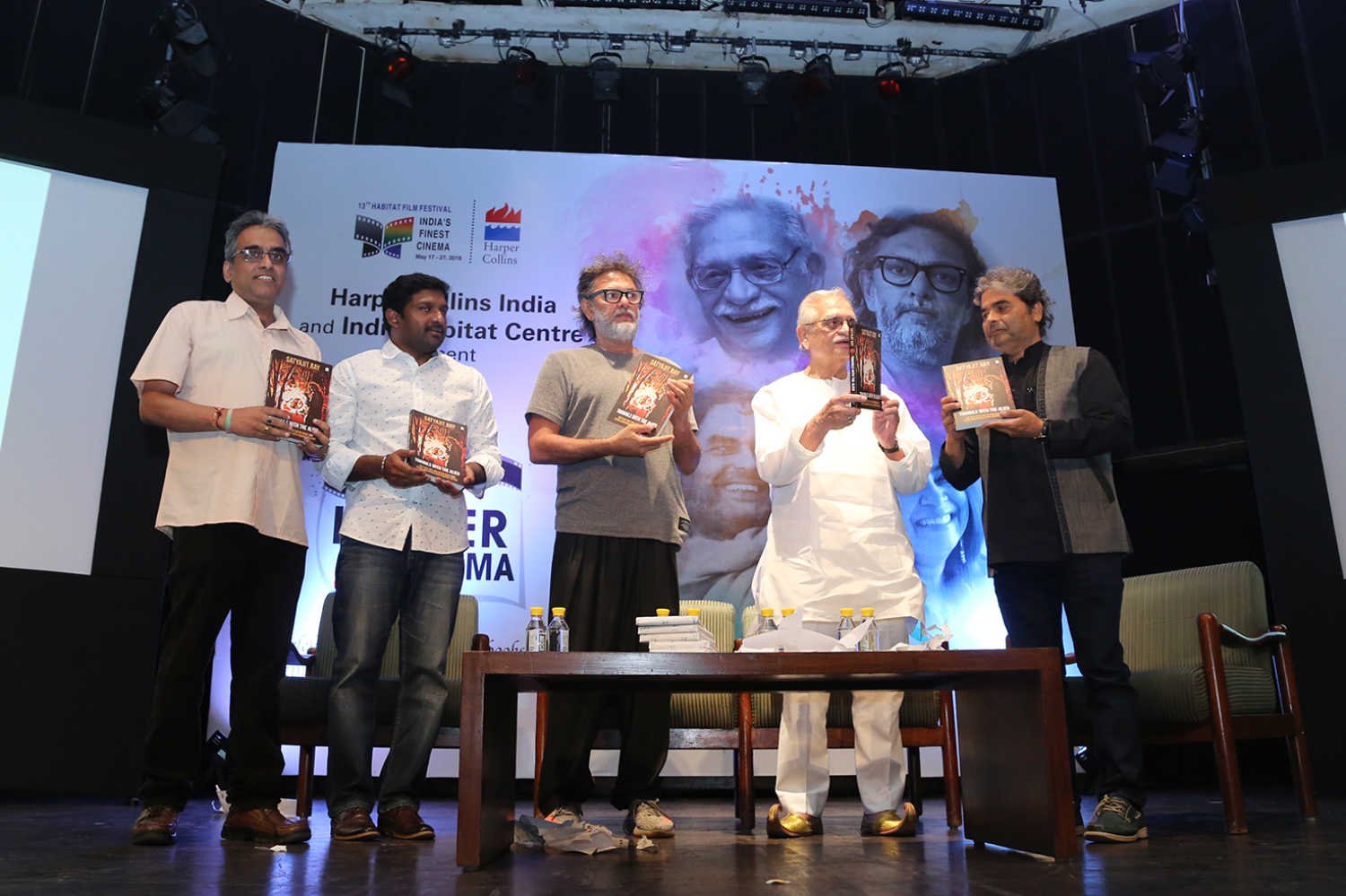Leading film critics, publishers, editors and authors discussed the writings on Indian Cinema, authorship, readership, history and market during a panel discussion at the 13th Habitat Film Festival.
We are all biographers when we set out to critique something: Author Gautam Chintamani
New Delhi - 22 May 2018 5:00 IST


Prateek Rawat
A panel discussion titled 'Writing Indian Cinema' was conducted at the 13th Habitat Film Festival in Delhi on 20 May. The panel discussion was an associated event at the festival which screens the best of regional films from the vibrant pan-Indian cinema of the country. The event was organized by the Habitat Film Club in collaboration with Harper Collins India.
The panel discussion was moderated by Kaveree Bamzai, consulting editor (special projects), India Today Group, who steered the discussion between producer and author Suresh Jindal, film critic Shubhra Gupta, film historian Gautam Chintamani, Harper Collins executive editor Shantanu Chaudhuri, and author Balaji Vittal.
Talking about the gradual growth of the market on books on Indian cinema, Shantanu Chaudhuri says, “The growth of books on Indian cinema is about a decade old phenomenon. None of us were sure if there was a market or readership for books on Indian cinema. Coincidently, the opportunity of publishing Dark Star: The Loneliness of Being Rajesh Khanna arrived with the death of Rajesh Khanna which led to Gautam Chintamani trying to research extensively in compiling a book that was a detailed, corroborated insight into the actor’s life. Fortunately, the book was a tremendous success that opened up new avenues of authorship on Indian films.”
Taking his cue from this, Chintamani opined, “Whether as film critics or authors, invariably we are all biographers when we set out to critique something. That biographical element, along with research allowed for such a book and writing on cinema in general to develop as it has.”
Balaji Vittal, the co-author of the book R.D. Burman: The Man, The Music added, “There are two parts to research on films and personalities — archives and interviews. We were fans of RD Burman. But when you set out to write a book, you have to take off the hats of fans and take on the hats of being authors so that you can critically and objectively discern the material.”
As the conversation develops around film writing and criticism and their relationship as critics with cinema, Shubhra Gupta explained her motivations. “Cinema is my way of making sense of the world, of being an armchair traveler and it makes me so many people I’m not. In fact, as a critic one has to realize that when you review a film it involves awareness and reading about everything around the film. Extensive reading beyond books on cinema are needed for an overall holistic understanding of the context of a film. Writing on cinema is about everything around you.”
Talking about social media and the age of “everyone is a critic”, and the pressures of getting your writing out there ASAP, Gupta added, “The world of film criticism has changed tremendously. There is much pressure to watch a film and write about it immediately unlike the older days when you could watch a film on Friday and then spend some time experiencing and understanding it, and then publishing a review on Sunday. That just doesn’t happen anymore.”
Suresh Jindal provided a counter view. “I appreciate the social media age. It has made our readers and viewers more discerning and sensitive. I think it is a good thing that people are becoming critics in this day and age. In fact, that makes our work as authors and critics to be more researched and exhaustive,” he said.
The panel discussion ended with a Q&A where audience members quizzed the panelists about developing the habit of reading within the youth, filmmaking, scripting, and writing. The panel discussion also saw Gulzar in attendance who chimed in towards the end to answer questions from the audience on the act of writing.

Gulzar wisely says, “The thing about stories or writing is that any storyteller will tell it in their own ways, the way they have experienced and felt on hearing or reading the story. The tale of the tortoise and the rabbit will be told by different grandparents in their own ways and versions. Different directors will look at the scene of an actress in the rain differently. Writing is a deeply personal act and an author or a scriptwriter has to find that authenticity and their voice if they want to write, and write well.”
Related topics
Habitat Film Festival


